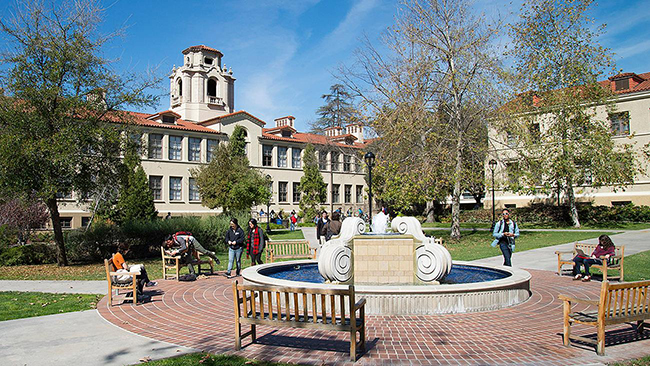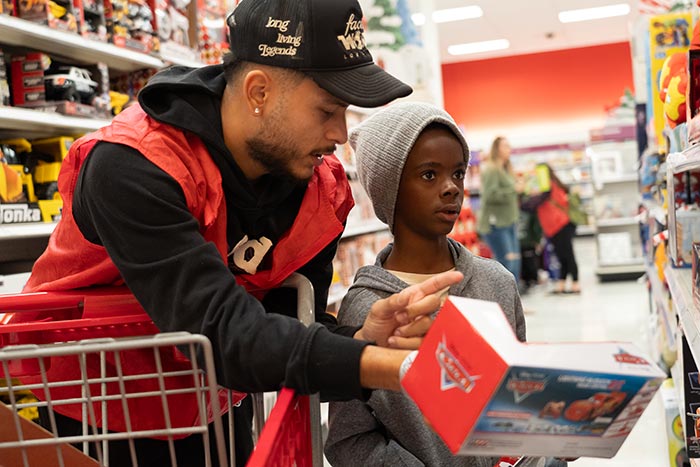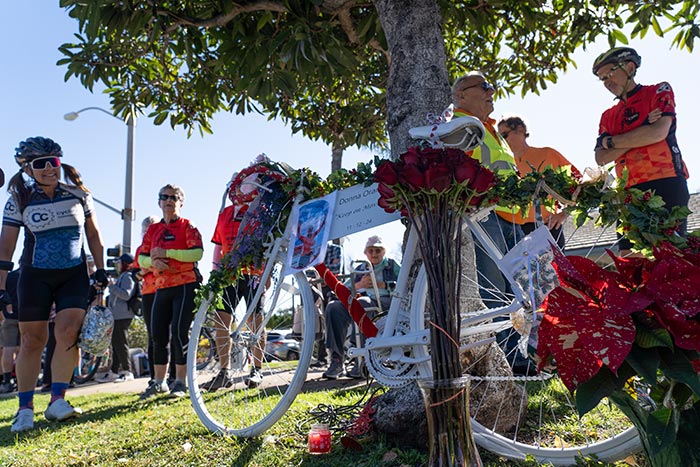Court clears way for Sam Dahlin’s second chance – Podcast

by Mick Rhodes | mickrhodes@claremont-courier.com
Every time I speak to Per Dahlin I’m overcome with admiration. She has a tenacity coupled with a capacity for love and compassion that just overwhelms me. I’m also sad. Sad for her, her family, and of course for her son, Samuel Kraemer-Dahlin.
“Sam” has spent the last six-and-a-half years living mostly on the street, battling voices in his head that in turn drive him to numb that torment with heroin and methamphetamine, which exacerbate his mental illness, and in turn cause him to increase his self-medication. It’s been a horrific seesaw between the only two choices the 32-year-old Claremont High graduate has seen for himself.
And it’s nearly killed him.
Sam’s suffered through a life-threatening bout of fungal meningitis and subsequent bilateral strokes, and has been in and out of medical and psychiatric hospitals, sober living and rehab facilities more than 50 times.
Since the first week of July 2021, he’s has been locked up in the notorious Men’s Central Jail in Downtown Los Angeles for a string of petty crimes, including breaking and entering, and possession of controlled substances and drug paraphernalia.
At first, he was placed into the jail’s general population. He lasted four days there before attempting suicide.
He was then moved to the jail’s highest level of mental healthcare, a smaller cell with other prisoners also in severe crisis where inmates are only allowed to wear a paper smock/dress.
Off suicide watch, he was then moved to a gymnasium-like room with more than 100 other prisoners in 35 triple bunks, all locked inside under the 24/7 glow of fluorescent lighting, with no yard time. He’s been there ever since, except for occasional court appearances, when he gets to see the sky.
The flipside of this misery though is for the first time in almost seven years, Sam is sober by choice.
Incarceration, his mother Per Dahlin agreed, has given her son a second chance at life.
“This is how I sort of look at it: he’s kind of traded traumas,” she said. “There is of course the physical trauma of living on the streets, of the danger, the poor nutrition, the exposure to the elements, all of those things. And of course the use of the drugs and the violence of the people around him. So there’s the trauma of the street life. But the jail traumas are not terribly different. The difference is he can’t go anywhere. He’s stuck there, facing himself. That’s the difference.”
Sam was back in Pomona Superior Court on Monday.
“He of course had a wonderful day because he got to get in the van and drive and be outside and see the sky and the light,” Sam’s mother Per said.
And for the first time in forever, Sam got some good news in that courtroom. The judge approved him for admittance into a county-run dual diagnosis program. If things go well and he stays on the straight and narrow, he will be admitted in four to six weeks and remain six to 12 months getting help with both his mental illness and addictions.
The program could turn out to be the first step back to a life free of the nightmarish Groundhog Day Sam’s been locked into for almost seven years. And it would mean a helluva lot to his family as well.
“Absolutely. Yeah, we’ll be able to give him a hug!” Per said with a joy-infused laugh. “It’s going to be wonderful.”
The last time she hugged her son was in the hospital last June.
Sam’s sobriety has also helped in other ways. His previous litany of eight medications has been reduced to two: a mild anti-psychotic and an antidepressant.
“So that tells you how much drug use makes mental issues so much worse,” Per said.
One of Sam’s other major medical problems — to what degree brain damage from the strokes has affected him cognitively — had not been properly assessed at the time he was jailed.
“They said it takes two years to really figure out how bad is the brain damage,” his mother said. “Well, we never got to figure that out because as soon as he was released from the hospital he quickly started using things. Now that he’s been sober for a long time we can see wow, he’s gotten a lot better.”
Per characterized Sam’s current state as “pretty fabulous.” His sister sends him a new book every week.
“And he’s reading them and he can talk about them, and it’s just amazing to us.”
Sam is a grown man of 32, but can still seem very childlike due to his disabilities. I asked Per how much of her boy she feels she has back now after the progress he’s made over the past seven months.
“A lot. I mean … where he was as a very young adult compared to now, in his thirties, we certainly have I would say 60 to 70 percent of him back. It’s a lot! It’s a lot, yeah. I’m so grateful.”
Getting into the dual diagnosis program is a huge hurdle. But with it Sam is going to have to shoulder the responsibility for his own outcome. If he stays sober and works hard he might be able to get to the root of his addiction, which feeds his mental illness, and vice-versa.
“So this will be a really big test for him,” Per said. “And it will be a test for us too, because the urge is going to be to rush in and try to rescue him, and we can’t do that; he’s going to have to live with the limitations that we put on him, and he’s going to have to make a lot of choices every day that are going to be hard.”
Sam’s family is still here, bruised and traumatized, just like him. But one day pretty soon, they could feasibly be together, not in a hospital or a courtroom, but around a dinner table perhaps. Sam doesn’t talk about that yet, his mother said.
And Per has begun to feel something she’s been unable to access for many years.
“I didn’t allow myself to have any hope for such a long time,” she said. “I mean, just a little hope. ‘Stay alive. Enjoy some things in your life.’ But now I have definitely … this is hard to say … just a broader hope that his life could actually get better.
“It does feel good, Mick. It really does, yeah. It’s a happy day for me.”
After Monday’s hearing she spent an hour in the sanctuary at Pilgrim Congregational Church, a few blocks north of the Pomona courthouse.
“And just sat for a while, because it just felt so big,” she said. “It’s really a good new year. Let’s hope it’s a good new year for a lot of people, right?”
1 Comment
Submit a Comment
You must be logged in to post a comment.










Sam’s family is grateful to the Courier and its readers for the waves of support we have received. We hope the compassion shown to us is also felt by others in our community whose loved ones struggle with their mental health and with addictions. There are many support groups for families and friends of people like Sam, including NAMI, which meets monthly, and Naranon, which meets weekly in person and on zoom at the Claremont UCC church, Monday nights, 6:30, second floor. All those affected by the addiction of a friend or loved one are welcome.